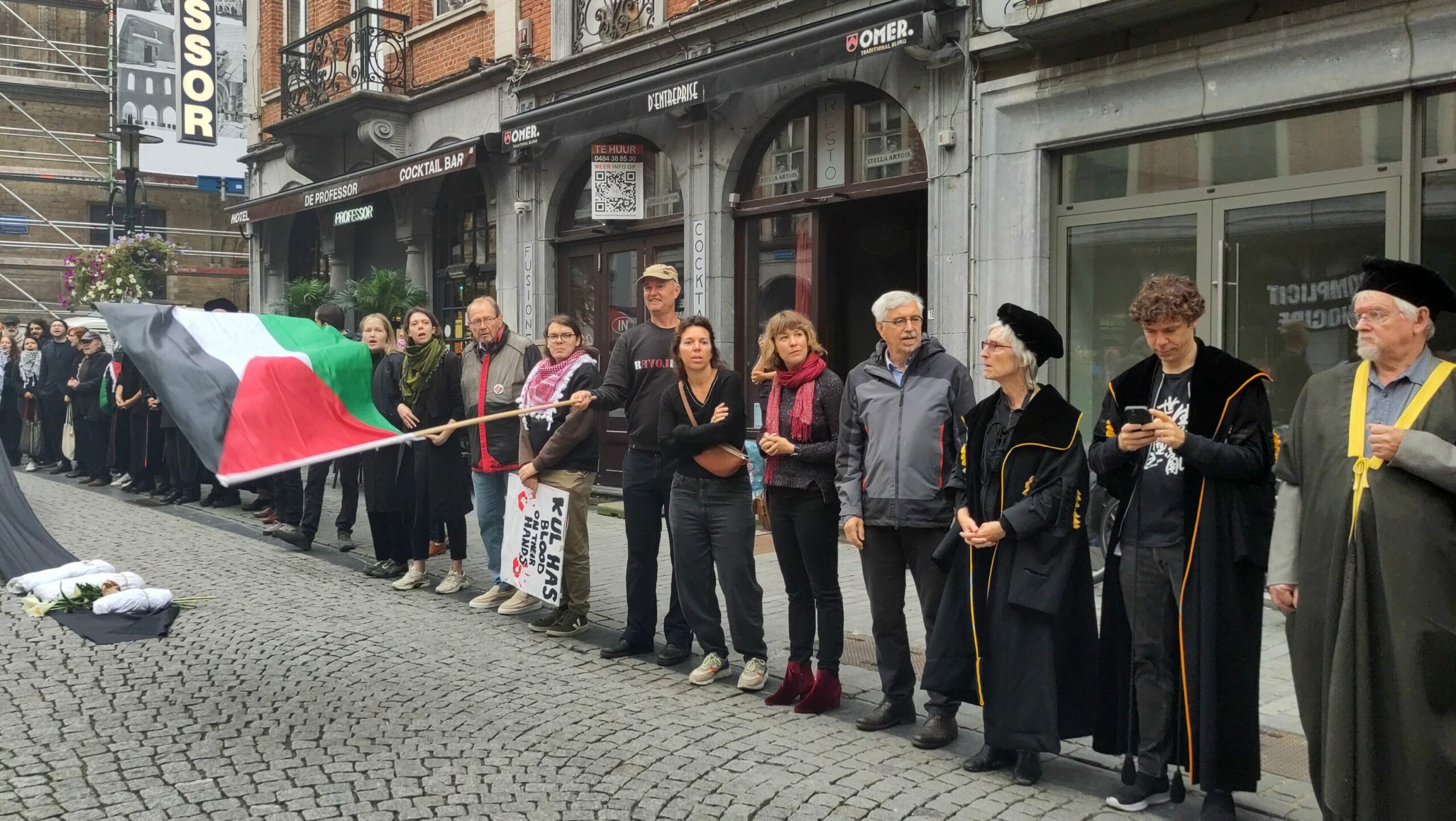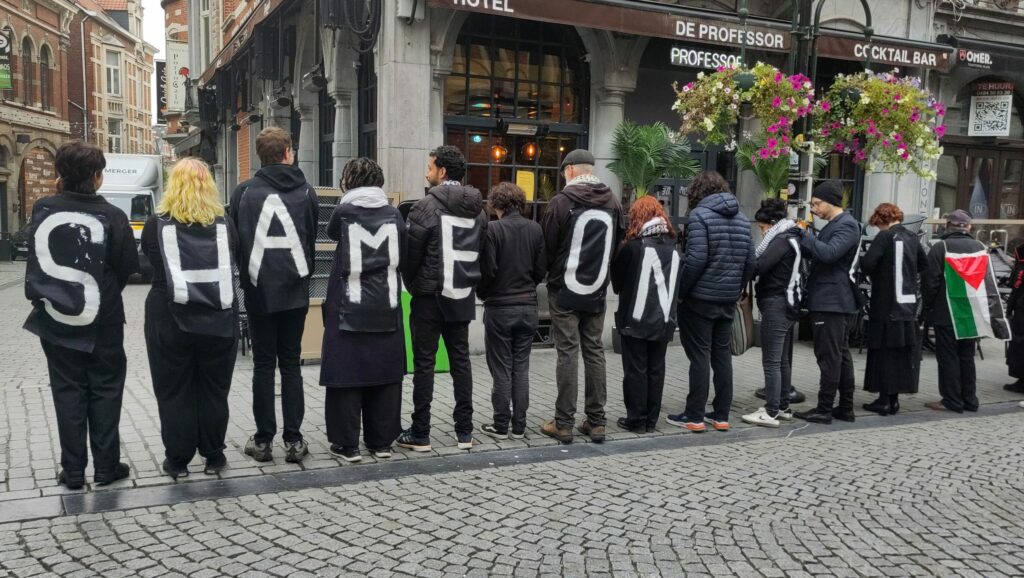Over 200 people symbolically turned their back on KU Leuven academic staff during the traditional university opening procession on Wednesday. The Pro-Palestine activists denounce KUL's continued collaboration with Israeli universities.
The annual Togati procession, in which some 100 KU Leuven professors and other university members dressed in academic gowns walk from the University Hall to Saint Peter's Church to attend a Eucharist service, took place on Wednesday morning. After the service, they proceeded to the Pieter De Somer Auditorium, where the Chancellor delivered an opening speech to mark the start of the new academic year.
However, as the procession left the church on the Grote Markt and continued down Naamsestraat, about 200 activists symbolically turned their backs on the university's academic staff and joined together to form a 'wall of shame'. Several professors, also wearing their gowns, could also be spotted among the demonstrators.
The protesters, including Leuven Palestine Action Group and the student occupation group Shaimaa College, wanted to express their disapproval of KU Leuven's cooperation with Israeli universities. They also denounce the forced end of the student occupation of the De Valk law faculty building.
One of the protestors who participated in the 'wall of shame', Hanna De Boe, also previously underwent a hunger strike for Palestine. "We are turning our backs on the Togati to let it be known that they are complicit in genocide. It is shameful," she told Het Laatste Nieuws.

Academic staff dressed in their gowns joined students to form the 'wall of shame'. Credit: Belga
Pro-Palestine students had occupied the building on the KU Leuven campus since May, demanding an academic boycott of Israeli universities and increased transparency on behalf of the university. Similar actions at Ghent University and the University of Antwerp led to agreements before the summer holidays, but this was not the case in Leuven.
After the university took legal action against the occupation, Leuven's Justice of the Peace court ordered protesters to leave the building on 6 September. Protesters vacated the building some days later, marking the end of the months-long occupation.
'Voices deserve to be heard'
However, protests have continued and the latest on Wednesday did not come as a surprise. "We were prepared for it," said KU Leuven Chancellor Luc Sels on Radio 1's 'De Ochtend' show this morning. "And I also consider this to be part of the opening, which is perfectly fine; their voices absolutely deserve to be heard loudly."
For Sels, the point of cotention between the KU Leuven and the protesters is the nature of the boycott. He said that while protesters demand an end to all collaborations with Israeli companies and universities, the university "remains committed" to the approach in which each project and collaboration is individually screened.
However, the Chancellor noted that if Israeli Prime Minister Benjamin Netanyahu's policies continue, "the European Commission should carefully consider whether a new association agreement is appropriate at this time" regarding future research framework programmes.
Pro-Palestine activists were also not alone in protesting at the procession. On the other side of the Grote Markt stood about 20 members of the 'Animal Rights' organisation, who reaffirmed their annual call to end animal testing in science at KUL.

